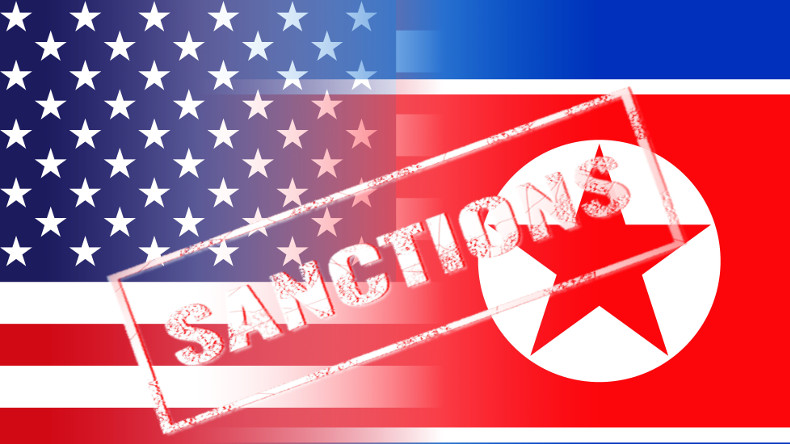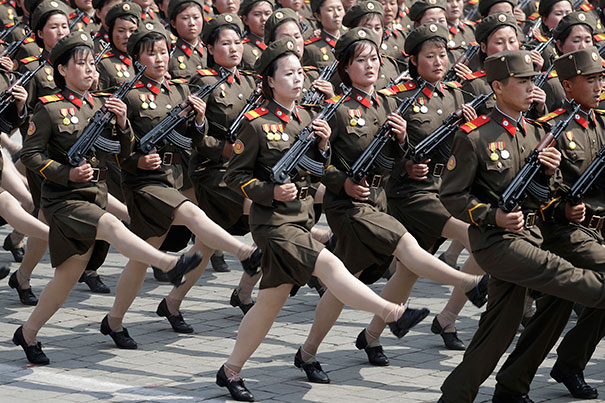
The 70th Anniversary of the Korean War
(June 22, 2020) —2020 marks the 70th year of the Korean War, which never formally ended but was merely halted by an armistice. The continued state of war is the root cause of militarism and tensions on the Korean Peninsula. To get to denuclearization, we must end the Korean War.
The United States is now entering the 70th year of being locked in a state of war with North Korea. It’s long past time to end tensions and hostilities and resolve this terrible conflict. In order to get to peace, we must end the Korean War.
The legacy of the unresolved Korean War keeps thousands of families separated from each other. This is a tragedy and a direct result of the lack of peace. We must end the Korean War, help reunite families, and begin to heal the painful divisions of this 70-year-old conflict.
In the 70th year of the Korean War, a reminder that this conflict continues to fuel tensions and hostilities on the Korean Peninsula and keep thousands of family members separated. To get to peace and begin to heal painful divisions, we must officially end the Korean War.
We actually have some great news! We now have 44 cosponsors for H Res 152!
Two more Representatives joined “H.Res.152 — Calling for a formal end of the Korean war” after our advocacy week! Ayanna Pressley (MA) and Paul Tonko (NY) are our newest cosponsors. You can see all of H. Res. 152’s cosponsors at this link.
ACTION: If your representative has not cosponsored H Res 152 yet, how about asking them to join this week?

Webinar: Korea, The Unknown War
Korea Peace Now & Women Mobilizing to End the War
On June 25, the 70th anniversary of what is officially known as the start of the Korean War, preeminent Korea historian Bruce Cumings will discuss the neglected history of the unresolved war and how it continues to haunt the present.
Bruce Cumings teaches modern Korean history, international history and East Asian political economy at the University of Chicago, where he has taught since 1987 and where he is the Gustavus F. and Ann M. Swift Distinguished Service Professor and the chairman of the History Department.
He is the author of The Origins of the Korean War, Korea’s Place in the Sun: A Modern History, North Korea: Another Country, co-author of Inventing the Axis of Evil, and the editor of the modern volume of the Cambridge History of Korea (forthcoming). He is a frequent contributor to The London Review of Books, The Nation, Current History, the Bulletin of the Atomic Scientists, and Le Monde Diplomatique.
Click here to register. JUNE 25, 2020: 8pm ET / 5pm PT. (English to Korean interpretation will be provided.)

Webinar: The Legacy of the Korean War on US Democracy, Economy, and Society
The Quincy Institute
WEBINAR DATE: Thursday, June 25, 2020
TIME: 4:00- 5:00 pm ET
(June 22, 2020) — The Quincy Institute invites you to a Zoom webinar on the legacy of the Korean War on American democracy, economy, and society.
June 25 marks the 70th anniversary of the start of the Korean War, which technically is still ongoing. President Harry Truman defended US participation in Korea as a “police action,” setting the stage for future presidents to circumvent Congressional declarations of war when sending US troops overseas.
The Korean War also cemented the post WWII military-industrial complex, which has grown into a seemingly unbreakable iron triangle of federal budget appropriations, weapons procurement, and lobbying contributions to members of congress by the arms corporations. This panel will discuss how the United States became so heavily militarized, and what we might do to walk back the endless war preparation and footing.
The panel will feature Representative Ro Khanna (CA-17), a member of the House Armed Services Committee and chief sponsor of H.Res.152 calling for a formal end to the Korean War; Mary Dudziak, QI Non-Resident Fellow and Asa Griggs Candler Professor of Law at Emory University School of Law; and Nikhil Pal Singh, QI Non-Resident Fellow and Professor of Social and Cultural Analysis and History at New York University. Quincy Institute CEO Lora Lumpe will moderate this discussion.

Sanctions on North Korea
World BEYOND War Factsheet
North Korea (DPRK), a country with no foreign outposts, finds itself surrounded by US troops embedded in South Korea (83 US military bases), Japan (112 US bases) and Guam (home to more than 70 nuclear-capable US B-52 bombers). Meanwhile, the US Navy’s Seventh Fleet (an armada of 50-70 ships and 240 aircraft) remains within striking distance. Faced with this armed encirclement, many in the North believe the DPRK’s nuclear program is the only thing protecting the country from a US invasion.
Imposing Sanctions on North Korea
The stated purpose of US sanctions is to impede North Korea’s development of missile and nuclear technology. Towards this end, the US Department of Treasury prohibits financial transactions by, or on behalf of, North Korea and has frozen North Korean assets held under US jurisdiction. The US also sanctions nations, companies, and individuals for doing business with North Korea. Additional sanctions have been imposed in response to North Korean cyberattacks; human rights violations; censorship; and money laundering.
Additionally, the European Union, Japan, Australia, and the United Nations have imposed sanctions on North Korea for its nuclear program. Trade bans initially focused on weapons-related materials were later expanded to include nancial transactions, general trade, and travel.
UN Sanctions on North Korea Include:
- Bans on the trade of arms and military equipment
- Bans on the import of certain luxury goods and natural gas, and the export of electrical equipment, coal, minerals, wood, textiles, seafood and other agricultural products
- A cap on imports of oil and petroleum
- Restrictions on North Korean fishing rights
- Limits on UN scientific and technical cooperation
- A prohibition on UN members from holding North Korean bank accounts
Attempts at Diplomacy
Sanctions have been lauded as an “effective” tool of foreign policy. However, a review of recent US-DPRK relations reveals how diplomatic flexibility — removing sanctions instead of imposing them — has been the more effective approach. Repeatedly, North Korea has signed anti-nuclear treaties and pulled back on nuclear weapons work in exchange for the US lifting sanctions. The record shows that it was the US that often reversed course by reimposing sanctions, thus provoking the North to resume its pursuit of nuclear weapons and missiles.
1994: US President Bill Clinton and Kim Il-Sung signed the Agreed Framework, under which North Korea agreed to halt plutonium production in exchange for relief from US sanctions, the delivery of fuel oil, economic aid, and formal assurances that Washington would no longer threaten to attack North Korea.
2001: US President George W. Bush renounced the Agreed Framework and reimposed sanctions, halting shipments of fuel oil and other aid. In response, the DPRK resumed its nuclear program.
2005: As part of the Six Party Talks, the DPRK agreed to abandon “all nuclear weapons and existing nuclear programs.” Later that year, when the Bush administration imposed new sanctions on the North, the DPRK resumed work on its rst nuclear weapon, and in 2006, tested the device.
2007: After the US lifted sanctions, the North rejoined the Six Party Talks, disabled its Yongbyon reactor and welcomed IAEA inspectors. But further progress stalled over the issue of outside verification.
2012: The DPRK offered to halt its nuclear enrichment and missile testing programs in exchange for food aid. The agreement faltered and, in 2013, the DPRK resumed nuclear testing.
2018: The two Koreas signed a joint “denuclearization” agreement in which the North agreed to dismantle its nuclear and missile testing sites in exchange for “corresponding measures” by the US.
2019: At a joint summit in Vietnam, DPRK Supreme Leader Kim Jong-Un and US President Trump failed to reach a denuclearization agreement, citing a dispute over the extent of sanctions relief.

Sanctions: Collateral Damage
The sanctions, which North Korea has called an “act of war,” have cost the North Korean economy billions of dollars. The UN Security Council estimated that its 2017 sanctions limiting coal and seafood exports would slash North Korean export revenue by $1 billion. According to Chinese customs, exports to China, which account for most of North Korea’s trade, were down by 88% in 2018, compared with 2017.
Illegal smuggling, plus a new import- substitution policy under the regime of Kim Jong-Un, have helped the country to weather the impact. The DPRK has increased domestic production, particularly of food and clothing, and prioritized its goals for economic and energy independence. According to analysts, China has also helped the DPRK to evade sanctions.
Meanwhile, US and UN sanctions continue to cost jobs, threaten healthcare services, and increase hunger for the North’s 25 million residents. A 2018 UNICEF report revealed 60,000 malnourished children were facing starvation because of the sanctions. The UN ban on seafood exports threatens the livelihoods of North Koreans who depend on selling their catch to China.
A ban on textiles has had a disproportionate impact on women workers. A ban on metal goods has interrupted the delivery of medical equipment. A ban on employing North Korean construction workers in Russia, China, and other countries has eliminated tens of thousands of jobs.
What is clear from multiple reports is that the sanctions are not working to achieve the goal of forcing North Korea to denuclearize. While the US and other international players maintain nuclear arsenals, North Korea refuses to unilaterally give up its own nuclear program. As DPRK state media has declared: “We will never barter the strategic security of the country for the sanctions relief.”

Military Exercises
The DPRK also objects to the Pentagon’s annual Foal Eagle joint-military- exercises. These “war games” involve tens of thousands of US and South Korean troops conducting operations near the North’s borders. The exercises also have practiced “decapitation strikes” targeting Kim Jong-Un and his top generals.
The North has repeatedly offered to halt nuclear and missile tests in exchange for suspension of these provocations. In 2019, South Korea and the US agreed to call o the planned Foal Eagle exercise. As promised, Kim halted missile launches and met with Trump inside the demilitarized zone. In July, however, the US resumed its war games and the DPRK renewed its missile launches.
Washington’s strategy of “maximum pressure” requires that the DPRK “fully denuclearize” before sanctions are lifted. It’s a Catch-22 situation. Washington claims its sanctions are a response to the DPRK’s nuclear program, while the North claims its weapons program is a response to Washington’s preparations for an attack on Pyongyang.
While the US is not expected to accept “mutual denuclearization” — which would mean removing its vast arsenal of nuclear weapons from the region — there is a step that Washington can take to reduce tensions in the Korean Peninsula. The US can sign a declaration officially ending the six-decade-long Korean War. Formally ending “America’s longest war” would be a major step toward peace.

A Pathway to Peace
The North has asked the US for a binding “non-aggression treaty” and maintains it has a right to possess nuclear weapons as long as the US continues to threaten the region with nuclear war. During a 2017 summit with South Korean president Moon Jae-In, Kim declared that denuclearization could not proceed until Washington first signed an agreement officially ending the Korean War. The next step would be for all parties to sign a formal Peace Treaty.
Posted in accordance with Title 17, Section 107, US Code, for noncommercial, educational purposes.